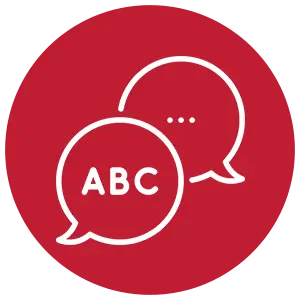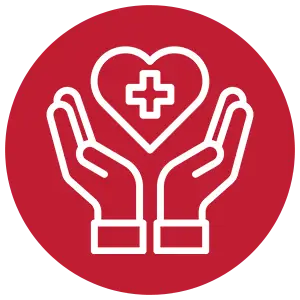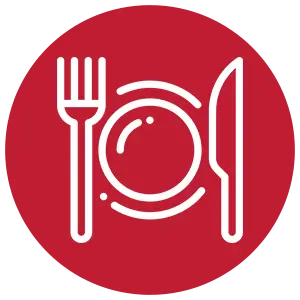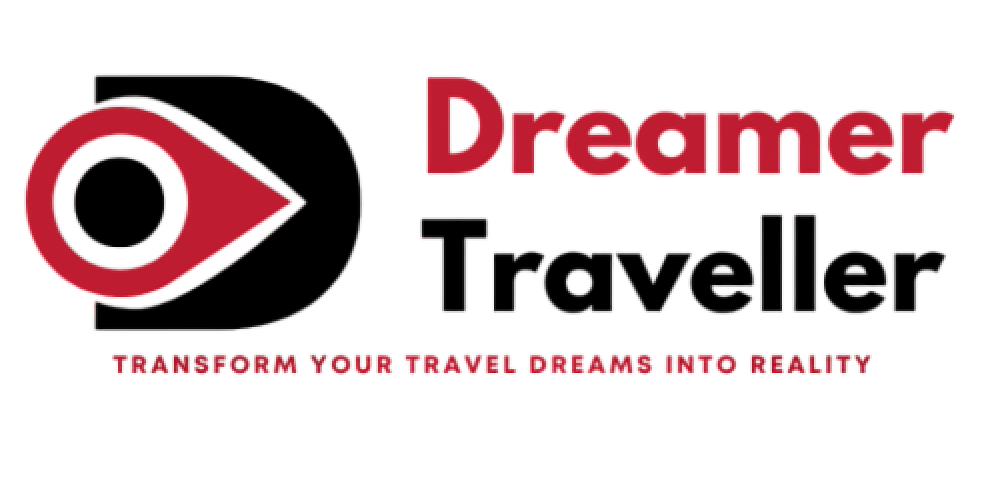
For inhabitants of South Asian Association for Regional Cooperation (SAARC) nations, the non-refundable ETA processing fee for a 30-day tourist visa with double entry is $15 USD. It costs $30 USD for people from all other countries.
In this section, write the changes you would want to see. Next, click the button below that says “paraphrase.” It’s that simple!
Changes to your content are indicated by green highlights, and you can make more edits by clicking on words and substituting synonyms. Try it out!
Indeed, a visa is required in order to enter Sri Lanka. In addition, you must get an Electronic Travel Authorization (ETA) prior to your arrival if you are planning a brief trip to Sri Lanka.

The majority of hotels offer internet access. Most localities have internet cafes with ADSL connections. Remote towns will have slow connections. Surfing in a cyber cafe typically costs around €0.50 per hour. Free WiFi is available to visitors at many five-star and some boutique hotels.
When dialing out, you must first enter “00” and the appropriate country code. You can dial a specific district, like Colombo, within the country without having to enter its area code (for example, just dial 2XXXXXX). However, the area codes are essential for out-of-town calls.
Indeed. You can select a local SIM and top-up cards (recharge cards) from a number of mobile providers, including Dialog, Mobitel, Etisalat, Hutch, and Airtel, if your phone is “dual band” and unlocked. At Katunayake Airport, Dialog offers a counter where you may purchase a connection for Rs. 1500.
The country code for Sri Lanka is 94 when dialing in. In Colombo, for example, dial ++94112XXXXXX to ring a number. After the country code, dial the mobile number if you wish to call it. For instance, if it’s a Mobitel number, it should read ++9471XXXXXXX.
GSM technology is supported by all mobile providers on the GSM 900 and 1800 frequencies. GPRS and WAP are widely supported. In Colombo, 3G and wireless broadband are available. at large towns, Wi-Fi zones can be found at specific locations.
English is a link language that most people can understand, although Sinhala and Tamil are the official and most commonly spoken languages in the nation. Every major restaurant, retail establishment, and hotel speaks English. The majority of road signs are written in both English and Sinhalese.

When it’s raining, you can usually turn on the plug-in insect repellent that most hotels give you. Most local supermarkets sell citronella candles, burning coils, and mats (tiny repellent tablets that are plugged into the plug-in unit). When dining outside, apply a repellant lotion, etc.
One of the most dependable healthcare systems in the developing world is found in Sri Lanka. However, outside of the major cities, emergency medical facilities might not be easily accessible. Before arriving, travelers from Africa or Latin America must present a current certificate of vaccination against meningitis and yellow fever.
Indeed. There is tranquility in the nation. As they take in the unspoiled splendor of the little island nation, tourists flock to Sri Lanka in record numbers and experience the prevailing sense of tranquility, security, and stability. We also guarantee the security and safety of our visitors where we perform our tours.
You should store all of your valuables, including cash, passports, tickets, jewelry, and other items, in the hotel safe deposit box in accordance with approved travel conventions. According to global convention, hotels are not liable for misplaced items in the room. Your Travelers’ Cheque numbers should be kept apart from the Travelers’ Cheques.

We provide a variety of lodging options, including eco lodges, villas, exclusive boutique hotels, and tents. However, some of our nature and adventure programs take us to isolated or undeveloped outlying locations where there may not be hotels of international tourist standards and the facilities are often subpar.
No, it is illegal to smoke or consume alcohol in public places in Sri Lanka. Additionally, smoking is prohibited in enclosed public areas like dining establishments and social clubs.
It’s true. For Buddhists, full moon days—also called Poya days—have religious importance and are dedicated to meditation and prayer. Abstinence is practiced out of reverence for Buddhist religious ceremonies. On Poya days, the government has ordered that all meat and liquor stores as well as entertainment venues stay closed.
Unless the water is filtered, we do not recommend drinking tap water. We advise against using corks or tops and instead advise using bottled water in containers with a serrated closure. The majority of hotel rooms feature safe-to-drink boiled water in thermos flasks.
Local beer in Sri Lanka comes in a variety. Additionally, there are two types of local liquor: toddy and arrack. A naturally occurring intoxicating beverage, toddy is extracted from palm trees. Arrack is made from fermented and refined toddy. Foreign liquors and imported beer are nearly as expensive as in the majority of western nations.
Both large and small eateries have an abundance of fresh fruit juice. It is both delicious and healthful. Even the tiny rural shops sell well-known international soft drinks. Thambili, also known as King Coconut, is a pleasant, clean, and inexpensive natural beverage that you can discover by the side of the road.
The first option is Ceylon tea, which is regarded as the best tea in the world. If you enjoy coffee, you could enjoy local coffee, even if it’s a bit strong. You might be able to buy a decent espresso in Colombo, but not anywhere else.
The menu consists solely of Sri Lankan rice and curry dishes. Sri Lankan vegetables make up the majority of the curries, while fish and fowl are occasionally added.
In large hotels, halal cuisine is not very prevalent. In addition to the Confifi chain of hotels (Eden, Riverina, and Club Palm Garden), the Galadari and Holiday Inn in Colombo serve halal cuisine. There are very few Halal restaurants outside of Colombo and Kandy. Seafood appears to be the greatest substitute.
There is a “vegetarian section” on the menus of upscale hotels and restaurants. Despite claiming to serve vegetarian meals, the smaller local “rice and curry” restaurants frequently serve fried fish or sprats (anchovies). The “South Indian” vegetarian eateries, on the other hand, provide only vegetarian food.

Institution | Hours | Open Days | Closed |
Banks | 09:00 – 15:00 | Mon – Fri (some open Sat morning) | Sundays, Poya Days* |
Government Offices | 09:30 – 17:00 | Mon – Fri (some open Sat morning) | Sundays, Poya Days |
Shops | 10:00 – 19:00 | Mon – Fri (some open Sat morning) | (Some open Sun morning), Poya Days |
Post Offices | 10:00 – 17:00 | Mon – Fri (Sat morning) | Sundays, Poya Days |
The majority of cities have ATMs. Most ATMs allow you to withdraw cash using a Visa or Mastercard. However, since different banks accept different cards, we advise you to check with your bank to make sure your card is accepted in Sri Lanka. Be wary of the Cirrus or Maestro logos!
No, they aren’t. Local businesses will use the exchange rate in effect on the day of payment to calculate your payments due to national exchange restrictions.
Local businesses, including those in small towns, accept and use credit cards. Visa and MasterCard are the most widely used card types, with Amex being used less frequently. Whenever possible, using your credit card—which is accepted abroad—would be a practical choice.
Only when you are leaving can you re-exchange (buy foreign currency) at the bank counters at the airport. Keep in mind that they will only accept bank receipts—not receipts from money changers.
Please save all exchange receipts for money declared with you, including those from ATMs. This will be helpful if you need to take your money out of the country and exchange it for another currency.
You must declare the entire amount brought in, even if it is less than US$15,000, if you plan to withdraw more than US$5,000 (or its equivalent in Euros or another currency) in currency notes from Sri Lanka.
Any quantity of foreign currency may be brought into Sri Lanka. It might appear in currency notes, bank drafts, or TCs. However, the amount must be reported to Sri Lanka Customs if it exceeds $15,000 USD (or its equivalent in euros or another currency).
Banks often charge a commission, which varies from bank to bank, plus a handling fee of 0.5%. We advise you to just convert the amount of money you will need to spend.
Only banks, money changers, and hotels are permitted to exchange foreign currencies. Travelers checks can be easily cashed at any large bank. Visa and Thomas Cook are the most often used.

Consider purchasing a sarong. It is incredibly lightweight, comfy, and nearly inconspicuous; it is also appropriate for all situations and uses, including temple etiquette.
It is customary to remove your shoes and hat when you visit a Hindu or Buddhist temple. Unfurl your umbrella if you are carrying one. Never visit a temple wearing beach attire, like as shorts or a singlet; instead, cover your shoulders and legs.
Larger hotels require males to wear “long attire” (no sandals, no shorts) for dinner, so it’s best to pack one piece of evening clothes. Women were allowed to wear dresses, skirts, or long shorts, but no swimwear or beachwear.
Clothing made of light-colored, lightweight cotton is perfect for Sri Lanka’s mild climate. If you intend to travel to the hilly areas, where the evenings might get cold, we would advise you to bring some warm clothing.

The best and driest seasons are May through September on the East Coast and December through March on the West and South Coasts as well as in the hill area.
Bringing a USB cord (camera to PC) is always advised in order to transfer the photos to a computer. For this, internet cafés are perfect. Just burn the photos onto a CD after copying them to the computer. This can keep your memory cards empty and is far less expensive.
In large cities, there are numerous franchised photo stores offering cutting-edge digital photographic services, like Kodak and Fuji. Nearly every kind of digital data storage device is compatible. A backup of your photos should always be kept before sending them to be processed.
Avoid taking pictures of roadblocks, airports, dams, or anything related to the military. Avoid using cameras in the vicinity of Colombo Fort.
Tourists are sometimes asked for money for taking photos. Always ask before you photograph whether payment is expected. Our accompanying representatives will be able to guide you on this.
Flash is prohibited at Sigiriya’s frescoes, however if it’s not prohibited, please act appropriately. A Buddha statue should never be posed next to or in front of (i.e., with your back to the statue). Such behavior is regarded as being incredibly disrespectful. Never take a picture of a monk without their consent.
Obtain consent before taking any photos of people, temples, or other places of worship. For instance, photography is prohibited within the Dambulla cave temple complex. Flash can harm murals in temples and other locations; hence it should never be used on them.
Prior to taking a picture of someone, get their consent, and if they decline, respect their choice. Being photographed frequently makes minority groups uneasy. If pictures are taken, please return copies to the village or through our tour guides so that copies can be distributed to the public.
Traveling during off-peak times has many advantages; most airfares and lodging costs decrease, and there are often additional discounts available, while the large crowds disperse. The average temperature along the coast stays at about 27°C. As the altitude increases, the temperature rapidly drops.
There are two monsoon seasons in Sri Lanka; the east coast’s rainy season is the south-west coast’s dry season, and vice versa. There is always a “right” season somewhere on the island, making Sri Lanka a year-round vacation spot.

You risk having your hands catch fire if you connect a 110V or 120V device (such a hair dryer) into a Sri Lankan 240V plug base.
India (Type D) or the United Kingdom (Type G) are the two plug bases used by Sri Lankan hotels. *The bigger 15 Amp plug, which is used for “heavy duty” equipment like microwave ovens and air conditioners, should not be confused.
The voltage is Sri Lanka is 220 / 240 volts.
